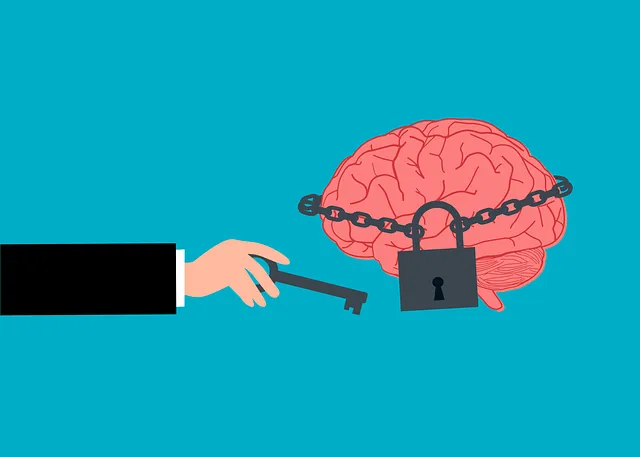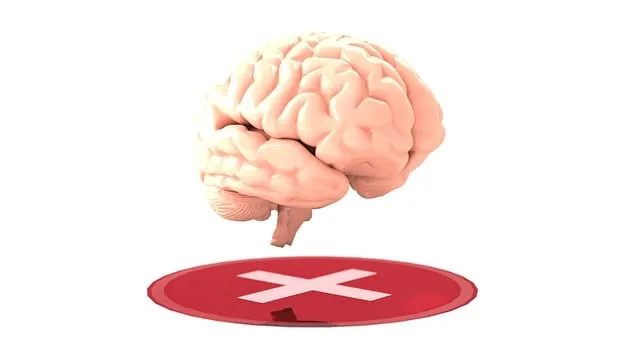The Kaiser Permanente mental health access center in Colorado Springs is a key player in substance abuse prevention and mitigation, addressing its multifaceted risks. By emphasizing comprehensive risk assessment, including genetic predispositions and environmental influences, the center offers affordable services like counseling, workshops, and stress management training to empower individuals with healthy coping mechanisms. Their holistic Self-Care Routine Development approach and cultural competency training foster community resilience against substance abuse, targeting at-risk youth through education and early intervention strategies. Evidence-based treatments and recovery programs, combined with mental health literacy campaigns, contribute to long-term success in combating addiction while promoting overall well-being within the community.
Substance abuse poses significant risks, impacting individuals, families, and communities. This article delves into comprehensive strategies for risk reduction, focusing on prevention, treatment, and recovery. We explore the critical role of organizations like the Kaiser Permanente Mental Health Access Center in Colorado Springs, which offers specialized services. Additionally, we discuss the power of community support networks, education, early intervention, and evidence-based treatments to foster a healthier, more resilient society. By examining these approaches, we aim to enhance long-term success in mitigating substance abuse.
- Understanding Substance Abuse: A Comprehensive Look at Risks and Impact
- The Role of Kaiser Permanente Mental Health Access Center Colorado Springs in Risk Mitigation
- Community Support Networks: Building a Strong Foundation Against Substance Abuse
- Education and Early Intervention: Key Strategies for Prevention
- Evidence-Based Treatments and Recovery Programs: Enhancing Long-Term Success
Understanding Substance Abuse: A Comprehensive Look at Risks and Impact

Substance abuse is a complex issue that requires a deep understanding of its underlying risks and impacts to effectively reduce it. It involves the harmful use of substances, such as alcohol, prescription medications, and illicit drugs, which can lead to significant physical and psychological dependence. The Kaiser Permanente mental health access center in Colorado Springs emphasizes the importance of comprehensive risk assessment, as substance abuse often stems from a combination of genetic predisposition, environmental factors, and mental health conditions.
The impact of substance abuse extends far beyond individual users, affecting families, communities, and society at large. It can result in various consequences, including legal issues, relationship problems, financial strain, and physical health complications. The Mind Over Matter Principles, a guiding framework often referenced by healthcare providers, highlights the power of mental resilience and healthy coping mechanisms as key components in risk reduction. Additionally, Healthcare Provider Cultural Competency Training plays a vital role in ensuring that professionals are equipped to address substance abuse issues sensitively and effectively, especially when considering diverse cultural backgrounds and beliefs. Stress management is another crucial aspect, as many individuals turn to substances as a form of self-medication to cope with underlying stress or trauma.
The Role of Kaiser Permanente Mental Health Access Center Colorado Springs in Risk Mitigation

The Kaiser Permanente Mental Health Access Center Colorado Springs plays a pivotal role in risk mitigation and substance abuse prevention within the community. This specialized center offers a comprehensive range of services designed to address mental health concerns, often at the root of substance abuse issues. By providing accessible and affordable care, they empower individuals to take charge of their well-being. The center’s expertise lies in promoting self-care practices and developing tailored routines that boost confidence and resilience against potential triggers.
Through counseling sessions, educational workshops, and community outreach programs, the Kaiser Permanente Mental Health Access Center fosters a supportive environment where individuals can learn coping mechanisms and build healthy habits. Their holistic approach encourages the adoption of Self-Care Routine Development for Better Mental Health, enabling people to proactively manage stress and emotions without resorting to harmful substances. This proactive strategy not only reduces individual risks but also contributes to a healthier, more resilient community overall.
Community Support Networks: Building a Strong Foundation Against Substance Abuse

Community Support Networks play a pivotal role in mitigating substance abuse within any community. By fostering a strong sense of belonging and solidarity, these networks provide individuals at risk with essential resources, guidance, and encouragement. In Colorado Springs, for instance, the Kaiser Permanente Mental Health Access Center serves as a beacon, offering comprehensive services that include counseling, therapy, and support groups. These initiatives aren’t merely about treating symptoms; they’re designed to empower individuals with coping mechanisms, promote positive thinking, and enhance emotional intelligence – skills that are crucial in navigating life’s challenges without resorting to substance abuse.
Moreover, community support networks thrive on cultural competency training for healthcare providers. This ensures that services are sensitive to diverse backgrounds, beliefs, and experiences, fostering trust and encouraging individuals from all walks of life to seek help. By combining access to quality mental health care with a supportive network, communities can effectively reduce substance abuse rates, ultimately enhancing the well-being of everyone within their reach, including those served by healthcare providers like Kaiser Permanente in Colorado Springs.
Education and Early Intervention: Key Strategies for Prevention

Education and Early Intervention play a pivotal role in preventing substance abuse, especially when tailored to meet the unique needs of communities like Colorado Springs. The Kaiser Permanente Mental Health Access Center has been at the forefront of this effort, developing innovative programs such as Mental Wellness Coaching and Public Awareness Campaigns. These initiatives aim to foster mental health literacy early on, empowering individuals to make informed decisions about their well-being.
By incorporating comprehensive Mental Health Education Programs Design, the center targets at-risk populations, providing them with essential tools to manage stress, cope with challenges, and avoid turning to substances as a means of relief. These educational interventions not only reduce the risk of substance abuse but also promote long-term mental wellness, ensuring that folks in Colorado Springs have access to resources that can positively shape their future.
Evidence-Based Treatments and Recovery Programs: Enhancing Long-Term Success

Evidence-based treatments and recovery programs play a pivotal role in enhancing long-term success for individuals struggling with substance abuse. These evidence-backed approaches, often integrated within comprehensive mental health services like those offered by the Kaiser Permanente Mental Health Access Center Colorado Springs, focus on addressing the underlying causes of addiction. By combining individual therapy, group support, and medication management, these programs tailor interventions to meet the unique needs of each client.
Mental Health Awareness and Education Programs Design are integral components of effective treatment strategies. Educating individuals about the impact of substance abuse on brain chemistry and mental health fosters understanding and empowers them to make informed choices. Furthermore, cultivating Emotional Intelligence allows people to recognize and manage their emotions, reducing triggers that could lead to relapse. Through these evidence-based practices, long-term recovery becomes more achievable, ensuring sustained sobriety and improved overall well-being.
Substance abuse is a complex issue, but with a multifaceted approach, we can significantly reduce risks. By combining community support networks, education, early intervention, and evidence-based treatments, such as those offered by the Kaiser Permanente Mental Health Access Center in Colorado Springs, we can foster a strong, resilient society. These strategies not only prevent initial substance abuse but also support long-term recovery, ultimately enhancing the well-being of individuals and communities alike.






